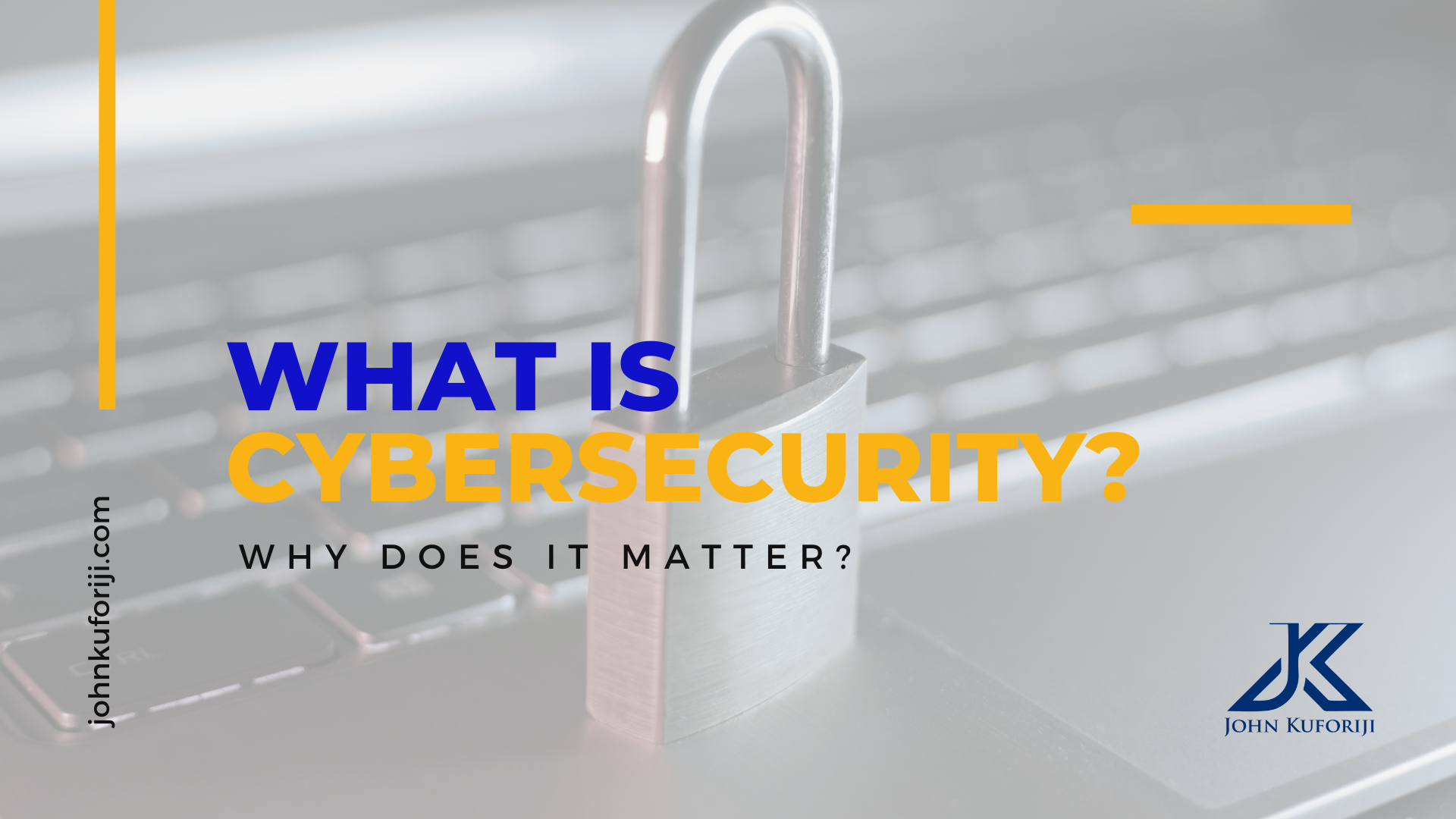
Growing up in Nigeria, my fears were tangible and immediate. Three-hour trips to and from boarding school were filled with prayers for protection from highway robberies, car accidents, or even home intrusions, typically happening in the middle of the night. We had a clear idea of the threats around us and took steps to protect ourselves: high fences, security guards, guard dogs, and my father’s diligent inspection of the bus and driver before each journey. Time has changed, and today’s threats are often less visible. In the past, someone would need physical access to steal information from you, but now, that’s no longer the case. In our drive to make everything more accessible, we’ve also increased our exposure to potential digital dangers. Just as we take physical precautions to protect ourselves and our homes, we need to establish similar protections for our digital world. My goal is to help you understand what cybersecurity is and why it’s essential.
What is Cybersecurity?
Seatbelts save lives by protecting us on the road. Cybersecurity, though it might sound technical, follows a similar principle. It acts as a protective layer in the digital world, like the steps we take to ensure physical safety, with the aim of protecting our digital assets.
Simply put, cybersecurity is about safeguarding our digital lives—our computers, networks, phones, and data—from digital attacks. Bad actors can target anything online, including our personal accounts (like emails and bank accounts), health records, confidential information, and anything they deem valuable. During the COVID-19 pandemic, handwashing became a popular safety measure to protect us from germs and disease. Adopting good cybersecurity practices similarly protects our devices and data from digital threats.
Think about your home. Many people reminisce about a time when everyone felt safe, and doors were often left unlocked. Times have changed, and today, homes not only have doors but also locks. These locks keep uninvited visitors out. In the digital world, passwords and PINs act as these locks, securing our virtual “doors” and “windows.” Without them, we are vulnerable to intrusions.
Why does Cybersecurity Matter?
Imagine the oil-rich Niger Delta in Nigeria—a land abundant in resources but plagued by environmental issues. Oil spills destroy the land and harm the livelihoods of the people. Just like an oil spill harms the environment, a digital security breach can have devastating impacts. Consider what could happen if your laptop, phone, or emails fell into the wrong hands, or if they were lost without backup. A single security compromise can expose your personal information, disrupt your life, or even have more severe consequences. That’s why protection alone isn’t enough; contingency plans are equally essential, especially for the things we consider critical.
Cybersecurity matters because staying safe online is just as important as staying safe physically in our increasingly connected world. Practicing good cybersecurity hygiene—like using strong passwords and updating security settings—can protect you and contribute to a safer online environment for everyone. Just as wearing a seatbelt protects you on the road, adopting cybersecurity practices helps ensure safety in our digital lives.
